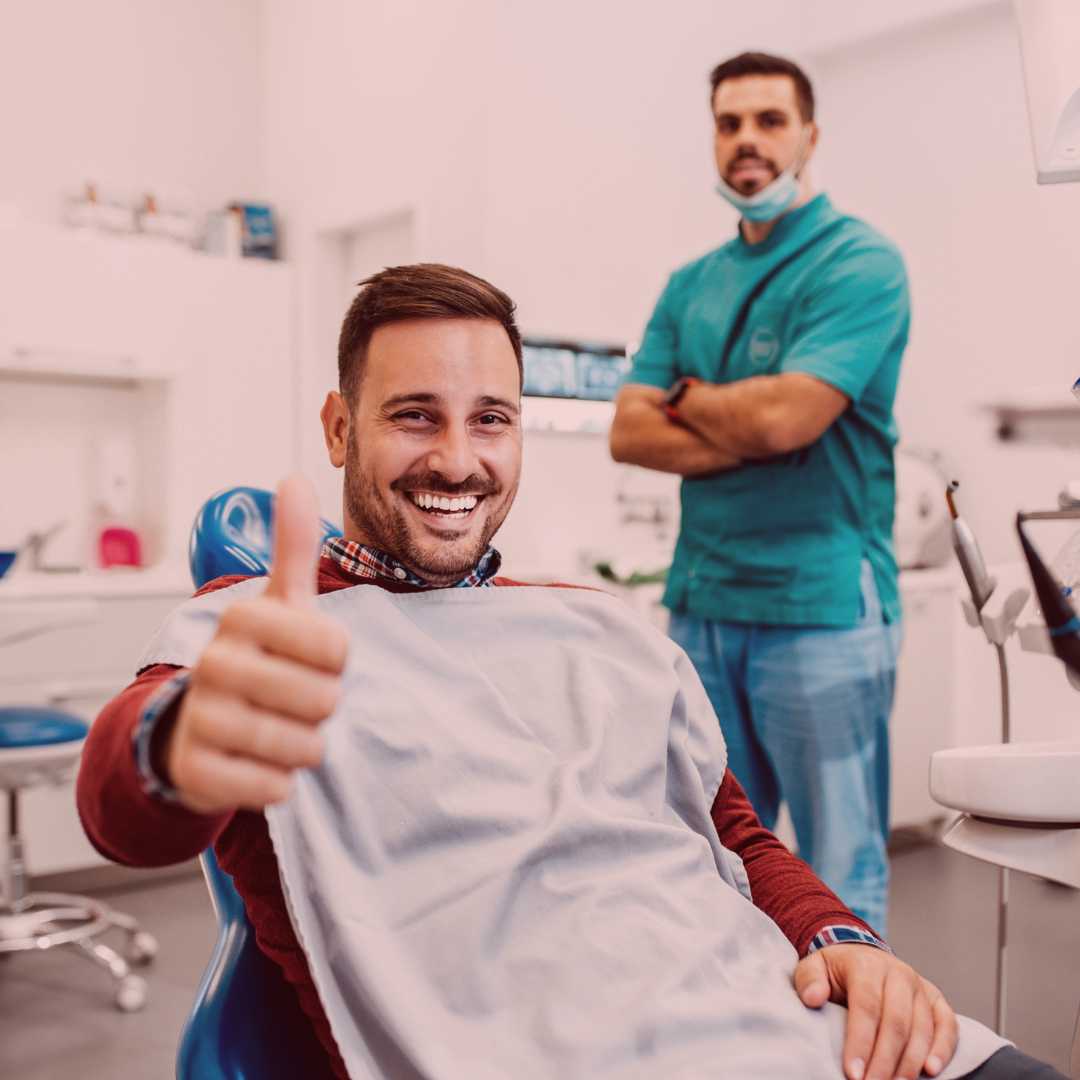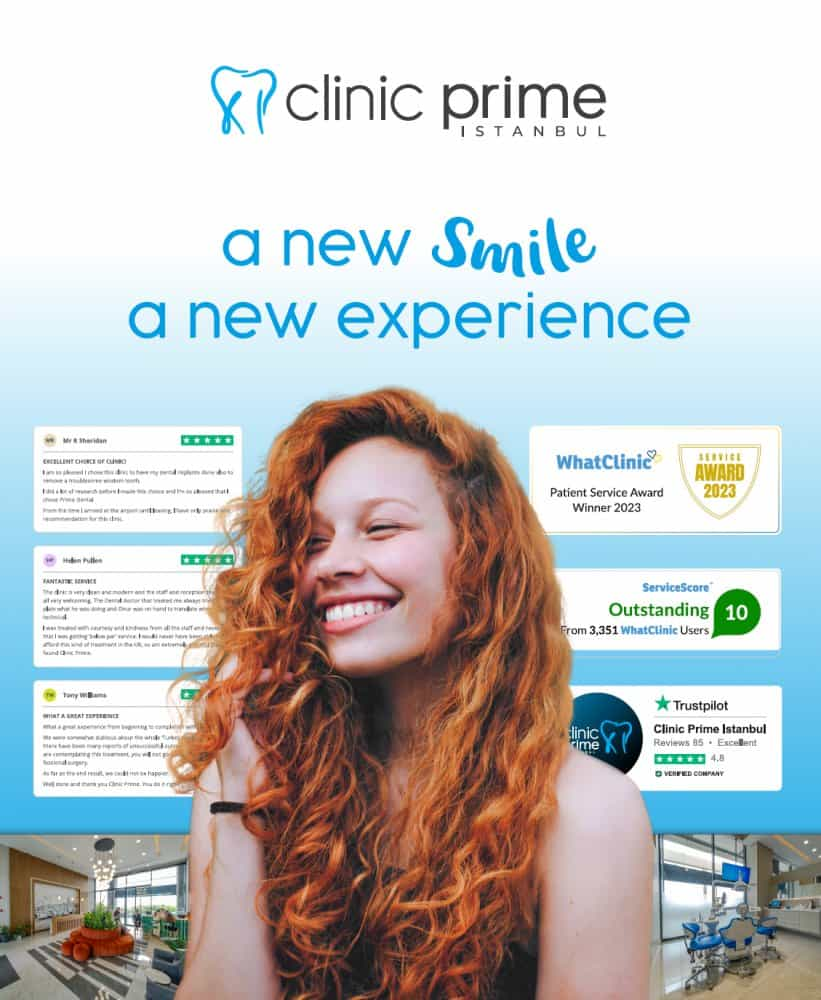Average Cost of Dental Veneers in Turkey
"The price of veneers in Turkey for UK patients is significantly lower than in the UK, typically ranging from £100 to £250 per tooth for composite veneers and £175 to £300 for porcelain or E-max veneers, while in the UK, a single veneer can cost between £500 and £1,500."

Many individuals from the UK are increasingly looking abroad for cosmetic dental treatments, with Turkey emerging as a particularly popular destination. The allure of a smile makeover at a fraction of the cost found at home is undeniable. This guide aims to provide a comprehensive overview of veneer prices in Turkey for UK patients, alongside crucial information regarding the types of veneers available, the treatment process, safety considerations, and what to look for when choosing a clinic. We will highlight the substantial savings that can be made, whilst also addressing any potential concerns, ensuring you are well-informed to make the best decision for your dental health and aesthetic goals.
What is the average cost of a single veneer in Turkey?
"The average cost of a single veneer in Turkey typically ranges from £100 for composite veneers to around £175-£300 for porcelain, E-max, or Zirconia veneers, depending on the clinic, the material chosen, and the complexity of the case."
This pricing usually covers the veneer itself and its placement. Variations in cost can stem from the clinic's reputation, the dentist's experience, the specific city (e.g., Istanbul, Antalya, Izmir), and the technology used. Even with these differences, the prices remain considerably more affordable than those found in the UK, making Turkey an attractive option for a smile transformation. Many clinics also offer all-inclusive packages that can include accommodation and transfers, further enhancing the value.
What is the average cost of a single veneer in the UK?
"In the UK, the average cost for a single veneer generally ranges from £500 for composite veneers to £1,500 for porcelain veneers, and can even exceed this for premium materials or complex cases."
This substantial price difference is a primary reason why many UK patients consider travelling to Turkey for their veneer treatment. The higher operational costs in the UK, including clinic overheads, labour expenses, and laboratory fees, contribute to these elevated prices. For patients requiring multiple veneers, the savings can be truly significant, even when factoring in travel and accommodation expenses.
Why are veneers cheaper in Turkey than in the UK?
"Veneers are cheaper in Turkey than in the UK mainly due to lower operational costs for dental clinics, a favourable exchange rate for the Turkish Lira, government incentives promoting medical tourism, and a highly competitive dental market."
The overall cost of living and running a business in Turkey is considerably lower than in the UK. This translates directly to reduced expenses for dental practices, including rent, staff wages, and even the cost of dental materials and laboratory work. The Turkish government actively supports and promotes medical tourism, which contributes to competitive pricing. Furthermore, the large number of dental clinics in major Turkish cities creates a competitive environment, encouraging clinics to offer high-quality services at more accessible prices to attract international clients. The exchange rate also plays a significant role, as the British Pound often has strong purchasing power against the Turkish Lira.
What factors influence the total cost of veneers in Turkey?
"The total cost of veneers in Turkey can be influenced by the type of material chosen (composite, porcelain, E-max, Zirconia), the number of veneers required, the reputation and location of the clinic, any additional preparatory treatments needed, and whether the package includes ancillary services like accommodation and transfers."
- Type of Material:
- Composite Veneers: Generally the most affordable option, made from a tooth-coloured resin applied directly to the tooth.
- Porcelain Veneers: More expensive than composite, offering superior aesthetics, durability, and stain resistance. This category includes standard porcelain, E-max (lithium disilicate), and Zirconia.
- E-max Veneers: A type of porcelain veneer known for its natural translucency and strength, often chosen for highly aesthetic results.
- Zirconia Veneers: Extremely strong and durable, often recommended for back teeth or patients with a strong bite, though can also be used for anterior teeth.
- Number of Veneers: The more veneers you opt for, the higher the overall cost. However, many clinics offer discounted rates for larger sets (e.g., a "Hollywood Smile" package for 16-20 veneers).
- Clinic Reputation and Location: Well-established clinics with advanced technology and highly experienced dentists, particularly in popular tourist cities like Antalya or Istanbul, might charge slightly more.
- Additional Procedures: Some patients may require preliminary treatments such as gum contouring, teeth whitening (for adjacent teeth), or minor orthodontic adjustments before veneer placement. These will add to the total cost.
- All-Inclusive Packages: Many clinics offer packages that bundle the veneer cost with services like airport transfers, hotel accommodation, and sometimes even post-treatment check-ups, which can influence the perceived total price.
Are all-inclusive veneer packages available in Turkey?
"Yes, many dental clinics in Turkey extensively offer all-inclusive veneer packages, designed to simplify the process for international patients by combining the cost of the veneers with accommodation, airport transfers, and sometimes other amenities."
These packages are a major draw for UK patients, as they provide a streamlined and often more economical approach to getting veneers abroad. They aim to cover the logistical aspects of your trip, allowing you to focus on your treatment and recovery. It's essential to carefully review the exact inclusions of any package to ensure it aligns with your expectations and budget. Some packages might include a certain number of nights in a specific hotel, while others might offer a choice of hotels.
What is included in a typical veneer package in Turkey?
"A typical veneer package in Turkey often includes the cost of the veneers themselves (based on the chosen material and number of teeth), the preparation and bonding procedure, initial consultations, digital smile design, panoramic X-rays, local anaesthesia, and post-operative medications."
Beyond the core dental treatment, many packages for UK patients frequently feature:
- Accommodation: A specified number of nights in a partnered hotel, often of good quality.
- Transfers: VIP airport transfers and daily transportation between the hotel and the dental clinic.
- Patient Coordinator: A dedicated multilingual coordinator to assist with scheduling, communication, and any queries throughout your stay.
- Temporary Veneers: While your permanent veneers are being fabricated.
- Follow-up Appointments: Initial post-treatment check-ups before you return to the UK.
Some premium packages might also include teeth whitening for natural teeth, a night guard, or even excursions to local attractions, enhancing the overall experience.
What is the quality of veneers in Turkey?
"The quality of veneers in Turkey is generally very high, with numerous clinics using internationally recognised and certified materials, employing advanced dental technologies, and having highly skilled and experienced dentists specialising in cosmetic dentistry."
Turkish dental practices often invest heavily in modern equipment, including sophisticated digital scanning for precise measurements, CAD/CAM technology for on-site veneer fabrication, and high-standard sterilisation protocols. They frequently source their porcelain and composite materials from reputable global manufacturers, ensuring the veneers meet international quality standards. Many Turkish dentists have received training from leading institutions worldwide and possess extensive experience in crafting aesthetically pleasing and durable veneers.
What is the success rate of veneers in Turkey?
"The success rate of veneers in Turkey is comparable to international benchmarks, typically ranging from 90% to 95% or higher, particularly when performed by skilled professionals and followed by proper oral hygiene and aftercare."
The longevity and success of veneers depend on several factors, including the patient's oral health, the quality of the materials and bonding techniques used, and the patient's commitment to maintenance. Reputable clinics in Turkey strive for high success rates by carefully assessing patient suitability, employing meticulous preparation and bonding procedures, and providing clear aftercare instructions. While no dental procedure is entirely without risk, choosing a well-regarded clinic significantly contributes to a positive and lasting outcome.
How long does the veneer procedure take in Turkey?
"The veneer procedure in Turkey typically requires a stay of approximately 5-7 days for porcelain or E-max veneers, spread across two to three visits, while composite veneers can often be completed in a single visit over 1-3 days."
- Porcelain/E-max Veneers:
- First Visit (Day 1-2): Initial consultation, comprehensive oral examination, digital smile design, and tooth preparation (a small amount of enamel is usually removed). Impressions of your teeth are taken and sent to the dental lab. Temporary veneers may be fitted.
- Second Visit (Day 3-5, depending on lab time): Try-in of the custom-made veneers. Any necessary adjustments are made to ensure a perfect fit and aesthetic.
- Third Visit (Day 5-7): Final bonding of the veneers to your teeth. Post-operative care instructions are provided, and a final check-up is performed.
- Composite Veneers: Often completed in a single longer appointment or over two shorter appointments. The composite resin is applied directly to the teeth, sculpted, and then hardened with a special light.
This efficient timeline allows international patients to combine their dental treatment with a short holiday.
Is it safe to get veneers in Turkey?
"Yes, it is generally safe to get veneers in Turkey, provided you select a reputable and accredited clinic with experienced dentists who adhere to international hygiene standards and offer transparent communication."
Turkey's medical tourism sector is well-regulated, and many clinics hold international certifications demonstrating their commitment to patient safety and quality of care. They use modern sterilisation equipment and follow strict protocols to minimise infection risks. However, as with any medical procedure abroad, it is crucial for UK patients to conduct thorough research, check clinic credentials, read patient reviews, and ensure clear communication regarding the treatment plan and potential risks. Being well-informed is key to a safe and successful experience.
What are the potential risks of getting veneers?
"While generally a safe procedure, potential risks of veneers include increased tooth sensitivity, damage to the natural tooth structure if excessive enamel is removed, ill-fitting veneers leading to gum irritation or decay, and the possibility of veneers chipping or detaching."
- Tooth Sensitivity: Some patients may experience temporary or, in rare cases, prolonged sensitivity to hot or cold after veneer placement, especially if significant tooth reduction was required.
- Enamel Removal: While minimal, some enamel must be removed to accommodate the veneer. This process is irreversible and means that if a veneer is ever removed, the tooth will always require a covering.
- Ill-fitting Veneers: Poorly fitted veneers can create gaps where food particles and bacteria can accumulate, leading to tooth decay or gum disease.
- Chipping or Detachment: Although durable, veneers can chip or detach, particularly if subjected to excessive force (e.g., biting on hard objects, teeth grinding).
- Colour Mismatch: While clinics strive for a perfect match, there's a slight risk of the veneer colour not perfectly matching adjacent natural teeth, especially if only a few veneers are placed.
Choosing a highly skilled dentist and adhering to aftercare instructions significantly minimises these risks.
What should I expect during the veneer consultation in Turkey?
"During a veneer consultation in Turkey, you should expect a comprehensive oral health assessment, including digital X-rays and possibly a 3D scan, a detailed discussion of your aesthetic goals, a digital smile design preview, and a personalised treatment plan with a transparent cost breakdown."
The consultation is a critical step where the dentist assesses your oral health, determines if you are a suitable candidate for veneers, and discusses the best treatment approach for your specific needs. Many Turkish clinics use state-of-the-art digital smile design technology, allowing you to see a preview of your potential new smile before treatment begins. This is an excellent opportunity to discuss your expectations, ask questions about the materials, procedure, and aftercare, and receive a clear, written quotation for the entire treatment.
What is the aftercare for veneers in Turkey?
"Aftercare for veneers in Turkey (and universally) involves maintaining excellent oral hygiene, including regular brushing and flossing, avoiding biting on hard objects, using a non-abrasive toothpaste, and attending regular dental check-ups, both in Turkey (if required) and with your local UK dentist."
Proper aftercare is essential for the longevity of your veneers. Your dentist in Turkey will provide specific instructions, which typically include:
- Oral Hygiene: Brushing at least twice a day with a soft-bristled toothbrush and non-abrasive toothpaste. Flossing daily to prevent plaque build-up around the veneers and gums.
- Dietary Habits: Avoiding overly hard or sticky foods that could potentially chip or dislodge veneers. Minimising consumption of staining agents like coffee, tea, and red wine, especially for composite veneers.
- Night Guards: If you clench or grind your teeth, your dentist might recommend a custom night guard to protect your veneers.
- Regular Dental Check-ups: Visiting your dentist regularly for professional cleaning and to monitor the health of your veneers and natural teeth. This includes follow-up appointments in Turkey if your treatment plan requires it, and ongoing care with your local dentist in the UK.
What are the benefits of choosing Turkey for veneers?
"Choosing Turkey for veneers offers substantial financial savings, access to high-quality cosmetic dentistry delivered by experienced specialists and utilising modern technology, the convenience of all-inclusive packages, and the unique opportunity to combine your dental treatment with a holiday experience."
The most compelling benefit for UK patients is the dramatic cost reduction, often allowing for a full smile transformation at a price equivalent to just a few veneers in the UK. Turkish clinics are well-equipped, with many adhering to international standards and employing highly skilled dentists. The comprehensive packages simplify travel logistics, making the process smoother and less stressful. Moreover, the chance to explore Turkey's rich culture, historical sites, and beautiful scenery during your trip adds an appealing dimension to the dental tourism experience.
How do I choose a reputable dental clinic in Turkey?
"To choose a reputable dental clinic in Turkey for veneers, look for clinics with international accreditations, extensive positive patient reviews from UK clients, transparent pricing with no hidden costs, clear communication in English, and evidence of highly qualified and experienced cosmetic dentists."
- Accreditations: Look for clinics with international certifications like ISO standards, indicating adherence to high quality and safety protocols.
- Patient Reviews and Testimonials: Check independent review platforms (Google, Trustpilot, dedicated medical tourism forums) for feedback from other UK patients. Pay attention to both positive experiences and how any issues were handled.
- Dentist Qualifications and Experience: Research the dentists' educational background, their specialisation in cosmetic dentistry and veneers, and their years of experience. Many clinics will highlight their dentists' portfolios.
- Transparency in Pricing: Ensure you receive a detailed, written quotation that clearly outlines all costs, including the veneers, any preparatory treatments, and what is included in the package (e.g., accommodation, transfers). Be wary of significantly lower prices that seem too good to be true.
- Communication: Effective and consistent communication in English is vital. A reputable clinic will have dedicated international patient coordinators who can answer all your questions pre- and post-treatment.
- Technology and Materials: Inquire about the technology they use (e.g., digital smile design, CAD/CAM) and the brands of veneer materials they offer.
What types of veneer materials are most popular in Turkey?
"The most popular veneer materials in Turkey for UK patients are E-max porcelain veneers due to their natural aesthetics and durability, followed by Zirconia veneers for their strength, and composite veneers as a more budget-friendly and less invasive option."
- E-max Veneers: Highly sought after for their excellent translucency, which mimics natural tooth enamel, and their robust strength. They are an ideal choice for achieving a very natural-looking yet significantly improved smile.
- Zirconia Veneers: Known for their exceptional strength and resistance to chipping, making them a good choice for patients who might exert more pressure on their teeth. While very strong, their opacity can sometimes make them appear less translucent than E-max.
- Composite Veneers: A popular choice for those seeking a quicker, more affordable, and often reversible solution. They are made from a resin material applied directly to the tooth and sculpted into shape. While generally less durable and more prone to staining than porcelain, they require minimal or no tooth preparation.
Clinics in Turkey often offer all three types, allowing patients to choose based on their aesthetic goals, budget, and dental requirements.
Can I get a full set of veneers in Turkey?
"Yes, it is very common and cost-effective to get a full set of veneers in Turkey, with many clinics offering dedicated 'Hollywood Smile' packages that include 16 to 20 or more veneers to transform the entire visible smile."
Getting a full set of veneers is one of the main reasons UK patients travel to Turkey, as the cost for such a comprehensive treatment is considerably lower than in the UK. Clinics are well-equipped to handle full mouth aesthetic rehabilitations, providing a cohesive and harmonised smile. Patients often find that the investment in a full set of veneers in Turkey still equates to significant savings compared to getting just a few veneers in their home country.
Explore PlacidWay for solutions related to medical tourism, healthcare services, and other relevant offerings.


.png)











.png)

Share this listing